sjambok (ˈʃæmbʌk; in South Africa -bɒk)
(noun)
Arms & Armor (excluding Firearms): a heavy whip of rhinoceros or hippopotamus hide
Arms & Armor (excluding Firearms): a stiff synthetic version of this, used in crowd control
(Verb) -boks, -bokking or -bokked
[transitive] to strike or beat with such a whip
[C19: from Afrikaans, from Malay samboq, chamboq, from Urdu chābuk] — Collins English Dictionary: Complete and Unabridged]
***
The first blow from Bala’s sjambok grazed Aru on the top of his shoulder, slipping off and not making any decent contact. Bala had meant to hit him straight across his back, but Aru had fortunately rolled out of the way just in time. Aru knew that moving away and not taking his whipping was only going to make Bala angrier and that would likely mean a severer punishment, but he couldn’t help it. Who could just stand there and take five blows from a sjambok like it was nothing?
Aru may have avoided the full might of Bala’s sjambok slamming down on him but the tip of the black, rubbery whip had caught enough of his shoulder to cause a searing, hot pain to shoot along his arm. It felt like his shoulder had been slashed open with a knife. If that was what a glancing clip felt like then Aru was scared to think what a clean hit would cause.
He was fucked.
“Come over here, lightie,” Bala said, as calmly as he had been the entire time since he had dragged Aru off the front stoep of his parents’ house, led him into the street and tried to sjambok him. That had been a few minutes ago but it felt like hours.
“You can’t run anywhere. This is what happens when you try your luck with my daughters. You try and hide from this sjambok again, and I’ll increase it from five cuts to ten cuts. Let me tell you something, if you get ten cuts from this thing, we have to take you to R.K. Khan’s Hospital afterwards. There’ll be no skin left on your back.”
“I never do nothing, Uncle Bala,” Aru said, his hand clasping his shoulder. “I swear to you.”
These were the first real words he had uttered since Bala had attacked him. He had been too shocked to mount any sort of defense to Bala’s accusations, but his head was finally starting to clear a little. “I never do nothing,” Aru repeated. He could feel a welt forming on his shoulder through the thin material of his t-shirt.
“Lies!” Bala shouted, slapping his sjambok hard onto the tar, producing a sharp cracking sound that was terrifying, as it echoed between the canyon of tightly-packed council houses on either side of the street. For the first time Aru noticed that Bala had tightly duck-tapped the sjambok’s handle into his closed fist. Aru had seen men in the neighborhood do this before. Supposedly it prevented the weapon from slipping from their hands, allowing them to strike with much more force.
Bala walked closer, his gaze fixed intently on Aru. His tormentor was in his mid-forties, a huge man, a bricklayer by trade, and easily more than 90 kilograms. He was bald and his face was dominated by a large, bushy mustache.
The work day was finishing, and surrounding them, in a rough circle, stood a growing crowd of blue-overalled men just off the city buses, eager for a bit of entertainment before they returned home for the day. They were laughing and shouting encouragement to Bala, who was a well-regarded and popular member of the community. The air was filled with smoke, both cigarettes and zol, and a number of the men held quarts of Black Label beer in their hands.
Aru quickly weighed through his options. He couldn’t try to fight back. He was eighteen and at 67 kilograms absolutely no match for the older man. It would be a bloodbath. Running away was also not on the cards. The men around them wouldn’t allow him to pass. In township justice a father avenging his daughter’s purity was always seen as being in the right. It didn’t matter if the justice involved something as drastic as a brutal sjambokking.
And even if Aru did manage to somehow get through the crowd, where would he go? Certainly not to his home. His father would hand him back to Bala in a blink. “If you want to act like a man, then you must take your hiding like a man,” his father would probably lecture. The only thing left to do was to accept his whipping or to try to somehow change Bala’s mind.
“Don’t tell lies,” Bala said again, not shouting this time, but still loud enough for everyone to hear. “You never do nothing? Then tell me what were you doing coming out of my house at three ‘o clock this afternoon. You think just because I’m at work I won’t know what’s happening in my own house? Me, I’ve got eyes everywhere. You took a chance and now you going to pay for it. You disrespected me, my boy.”
“I respect you, Uncle Bala,” Aru said, trying to keep his voice under control. It was starting quiver a little. The last thing he wanted was to cry in front of all these men. He would never live that down. But it was hard keeping everything together while a monster of a man was staring you down with a barrage of intimidating words. Not to mention the fear of the sjambokking to come. “It’s not what you think. It’s a misunderstanding.”
Bala knelt down on his hunches, the sjambok bent against the ground, forming a gleaming bow. He had complete control of the situation and was in no hurry to get everything over with. The crowd was building and this was a chance to play to them.
“Mari, come here,” Bala instructed, pointing his whip at one section of the crowd.
An old, thin man dressed in shabby clothing stepped forward. He was holding an almost empty bottle of beer in his hand. Aru recognized him as the grandfather of one of his former high-school classmates. The man had once been a house painter but now in his seventies, he spent his days drinking at local shebeens.
“Mari, tell me something, you see this moffie lightie?” Bala said, his sjambok directed at Aru.
Mari nodded, a scowl on his gaunt, grey stubbled face.
“I won’t put words in your mouth, Pa. You tell me what you saw,” Bala continued. Bala’s use of the affectionate handle ‘Pa’, which adults often used when talking to elderly men, seemed to please Mari and the scowl melted from his face.
“No problem, bhai. Three o’ clock, me, I was walking home from Rooko’s sheebucks,” Mari said, referring to the most popular neighbourhood shebeen, which was a couple hundred metres from Bala’s place. “I was feeling a little skraal so I stopped by Bala’s house to go cut some guavas from his garden. Me, I don’t steal eh. I asked Bala a long time ago if I can eat guavas from his tree. Isn’t it, bhai?”
“That’s right, Pa. You asked me permission, and I said yes. Anything you want you can come and take from my garden,” Bala replied, getting up and tapping the old man on his shoulder, with his left hand, seeing as right hand was firmly attached to the sjambok. “Tell the menses here what you saw.”
Aru thought that this was becoming more like one of the court cases he would watch on Judge Judy. He was unemployed and would spend most mornings watching the show’s three-episode omnibus. He enjoyed Judge Judy’s caustic tongue and would laugh at the dressing downs she would regularly hand out to people who dared talk back to her.
Mari took a big sip of his beer until it was finished and let out a burp, which caused a few men nearby to titter. It was clear that, like Bala, he was enjoying his moment in the limelight.
“I was feeling the guavas on the tree for the ripe ones when I saw that lightie over there coming out from the back door of your house,” Mari said, a crooked finger raised at Aru. “Quick he was walking like he’s in a hurry and he don’t want no-one to see him. Me, I know this lightie. Jeeva’s lightie this is. Plus he was wearing the same clothes. Fair-fair I saw him coming from your house, bhai. Satima.”
“Thanks, Pa,” Bala said, a satisfied look on his face. “I’ll handle it from here.”
He guided Mari gently back into the crowd.
Bala sneered and turned his attention once more to Aru. “So is Mari lying to us? You think an old man like him has got time to make up stories. Tell me the truth. Did you or did you not go into my house today?”
The pain in Aru’s shoulder had dulled a little but it was still throbbing. His lips and mouth were dry and it felt as if his tongue was made out of cardboard. There was no point in denying it any longer.
“Ja, Uncle Bala,” Aru said, looking straight at him. “I was at your house today but—”
“See, I told you people,” Bala interrupted, before Aru had finished speaking, and gestured to the men around them. “I won’t punish someone for no reason. I’m a fair person. But now he must get his sjambokking. Am I right or wrong?”
An angry murmur went through the crowd. Aru’s head was swirling, but he still managed to hear some of the “advice” Bala was receiving from the men.
“Slaan him, Bala!”
“Whip that lightie and leave him!”
“If it was my daughter I’ll do the same thing.”
“Moer him!”
“Which of my daughters it was?” Bala shouted, seemingly energized by the feedback. “Kershnee?”
Kershnee, the second oldest of Bala’s three children—the other two were also girls—was the same age as Aru. She was gorgeous, one of the prettiest girls in the neighborhood, as were Latisha and Vaneshree, 16 and 21 respectively.
Aru understood perfectly well why a father would be protective over such desirable daughters. Almost every boy in the neighborhood wanted to get with them. But desirable or not Aru had no interest in any of the girls.
That was not why he was seen coming out of Bala’s house at three o’ clock. It was a lie and a false accusation that he was sneaking around with one of Bala’s daughters.
Bala had him by the neck now, choking him, and despite his squirming had managed to push him flat onto the street. Bala then lifted the t-shirt off Aru’s back. Two men came forward and helped him to hold Aru down.
“It was Kershnee, isn’t it? Don’t worry she will get it too,” Bala said. He sounded like he was in a trance, as if he wasn’t listening anymore. “You come into my house eh? My daughter? You’re going to suffer.”
Aru’s head was against the ground, the gravel digging into his cheek and his bare chest. He could hardly breathe. Even if he wanted to speak up he couldn’t.
Bala cracked the sjambok in the air once, and a cheer went up amongst the men.
Aru readied himself.
Then, just before the sjambok came down, a woman’s breathless shout cut through all the excited noise. “Bala, leave that boy alone right now! You heard me? He never do nothing wrong. The girls weren’t even at home when he was there. He came over to ask to clean our garden. He was looking for work.”
It was Bala’s wife, Mona.
She repeated: “He never do nothing wrong. He hasn’t got a job, and he’s trying to better himself. I told him that he should ask you first.”
“What?” Bala replied, clearly confused. Aru couldn’t see what was happening, but the two men holding him down loosened their grips a little. Mona’s voice went lower, and he could hear the husband and wife talking, though he found it difficult to make out all the words. The men around them were buzzing with discussion of this new development.
Aru felt the hands holding him let go. He turned around and saw Bala and Mona standing over him.
“Why you didn’t tell me that’s the reason you visited my house? If you just told me that at the beginning then there wouldn’t have been a problem. We wouldn’t have had all this drama,” Bala said, still looking angry, but a touch contrite. It was obvious that he wanted to be on his way. His sjambok hung limply at his side, still tapped fast to his hand.
Aru’s throat was hoarse from being choked, and he tried clearing it so that he could answer Bala. But Mona spoke for him. “If a big-sized man starts attacking you for no reason with a sjambok, do you think you will be able to talk sensibly? You scared the boy to death. I’m surprised he said anything to you at all.”
Bala snorted, gave a weak “Sorry” under his breath and made to leave.
Mona stopped him. “Bala, don’t you agree that Arushan should clean our garden. It’s the least you can do after all this.”
Bala gave another snort, more of a grunt this time. “He can come tomorrow morning. R20. Nothing more.”
Without waiting for a reply, he turned and left, not looking at anyone in the crowd. He would no doubt be keeping a low profile over the coming weeks. The crowd itself began to thin out, disappointed, making their way home for supper, where this failed sjambokking would probably be the main topic of conversation. In the space of two minutes a mob baying for blood had evaporated.
Aru sat up in the middle of the street and held his throat, massaging it. He couldn’t quite believe everything that had just happened.
Mona had stayed behind, and he gave her a weak smile.
She, like Bala, was in her mid forties. She was wearing a ratty housecoat, her hair, wet and recently dyed black, was tied in a hurried bun. Despite being dressed in this unglamorous manner, she was undeniably beautiful, the tiny wrinkles around her eyes the only real clue of her age. Her skin was luminously olive brown in the late afternoon Durban sun and her body showed little sign of having borne three teenage children. It would have been evident to anybody that her daughters got their looks from her. It was certainly not from the bull-like Bala.
Mona handed Aru his t-shirt and helped him get to his feet. “Do you think you’ll be able to get home okay?” she asked.
He nodded, and gave a barely audible “Ja.”
She saw the small welt that the sjambok had made on his shoulder and rested her palm on it. It felt like electricity.
“Sorry about that,” Mona said, with a cute, concerned pout, running her forefinger slowly over the welt.
She was so close that he could see down her top. Through the pain and discomfort, he still felt himself get aroused. That was an effect that only she could have on him.
Mona looked around and when she was satisfied that no-one was in ear-shot. “I told you before, you must be more careful when you’re coming out of the house. You never know who is watching. Maybe we have to slow it down for the next few weeks—but you should still come over tomorrow to clean the garden, just so that he won’t get suspicious. That was the only excuse I could think of, sorry. And afterwards, I’ve got a little present for you,” she smiled, discreetly slipping open the top button of her housecoat and giving him a better glimpse of her cleavage. She quickly buttoned up again and pursed her lips at him in an air kiss.
Those breasts and that body would be worth a thousand sjambokkings, Aru thought, as he watched his lover walk away from him.
“Bye,” he said, his voice still not all there, then slipped on his t-shirt and hobbled towards his house. The street was deserted. The only person still out was Mari, sitting on the pavement, nursing another nearly empty quart of beer, likely scavenged from one of the men.
********
Post image by Berit Watkin via Flickr
About the Author:
 Pravasan Pillay is a South African writer. He has published two chapbooks of poetry, Glumlazi (2009) and 30 Poems (2015), as well as a collection of co-written comedic short stories, Shaggy (2013). He is also the editor of the micro press Tearoom Books.
Pravasan Pillay is a South African writer. He has published two chapbooks of poetry, Glumlazi (2009) and 30 Poems (2015), as well as a collection of co-written comedic short stories, Shaggy (2013). He is also the editor of the micro press Tearoom Books.


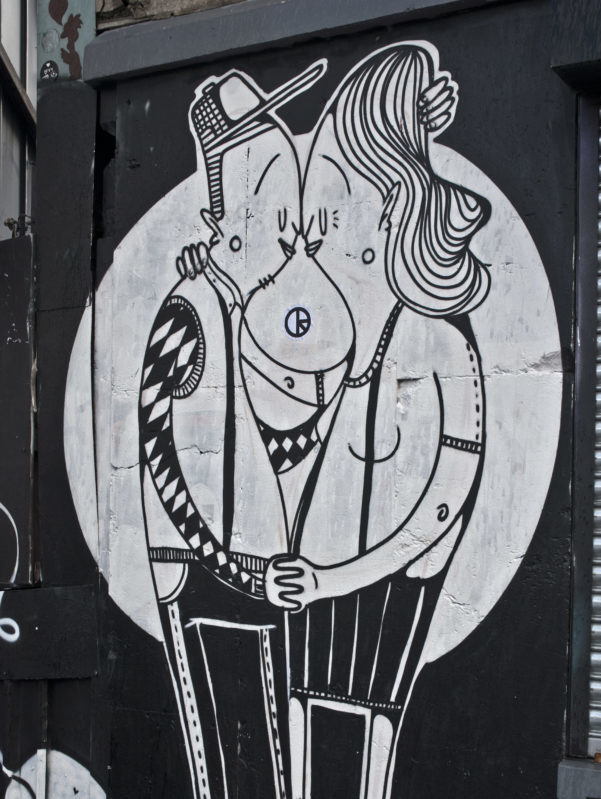
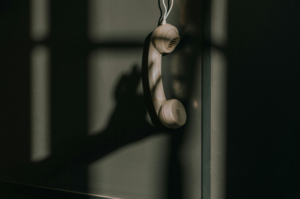

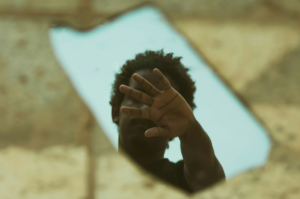

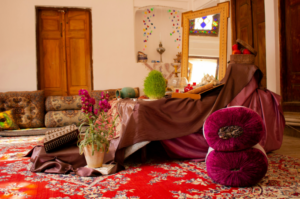
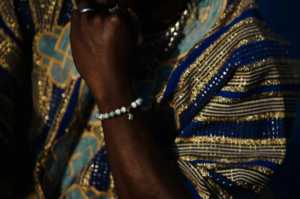

Mark September 08, 2016 18:40
Where is the follow up?